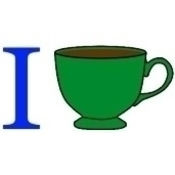Because TKTs are so vocabulary dependant and because that vocabulary needs to be easy to access from TKT to TKT, I’ve decided to create a glossary of terms used in TKTs which will be linked not only on the Writings page but also the TKT page. I’ll also try to remember to post it either at the beginning or end of each TKT from now on (and may go back and edit the others to include the link as well) so that it can be easily accessed each time a TKT is posted. The glossary will open in a new window or tab (depending on what type of browser you use) so that you can flip back and forth, if need be.
Why am I calling this a glossary and not a dictionary? Mostly because the term glossary most closely defines the goals I’m seeking here. A glossary is a collection of textual glosses (i.e., explaining particular words used in the text associated with the glossary) or specialized terms and their meanings. I’d say that both quite accurately describe the aims here. This glossary will be attached to a particular text (i.e., the TKT posts on Writing in Green) and covers specialized terms and their meanings. I’d say an entire list of linguistic terms would count as specialized, hence using the term glossary. Dictionary is more broadly defined and generally refers to a completely separate work published with terms covering a variety of subjects, often giving etymology and pronunciation, among other things. Below is an example of what an entry in the TKTG (Thirsty for Knowledge Thursdays Glossary) will look like:
etymology– the history of a linguistic form (e.g., suffixes, morphemes, compounds) by tracing its historical development since its earliest use in its own language, tracing to from one language to another, identifying its cognates in other languages or tracing it and its cognates to a common ancestral form. See: TKT #15
I’ll try to include links to as many TKTs as have examples of the given term so that if you need to see the word used in a context other than the one being expounded upon in the TKT you’re reading, you can easily access other uses. Of course, the glossary will be in alphabetical order, which should make finding terms easier, and where appropriate, I’ll try to include examples following the definition to help out. Don’t worry though; I won’t ever give you a vocabulary test. I hope the glossary helps! It’s not done yet–I’ve been working on it off and on for the past week–but I’ll continue to add to it and update whenver I post a TKT.
